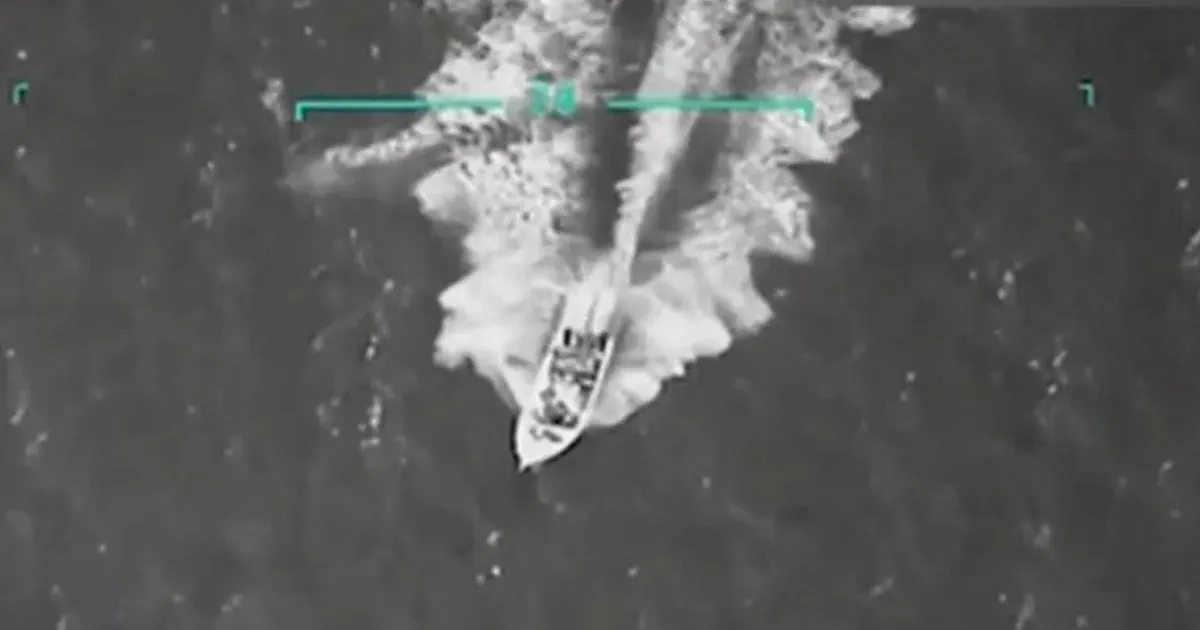
The United States is committed to maintaining military assets in the Caribbean and taking decisive action against narco-terrorists operating in these waters, Secretary of Defense Pete Hegseth stated on Wednesday. This announcement came just a day after President Donald Trump confirmed that U.S. military forces had successfully attacked and destroyed a drug-laden vessel in the region. According to Trump, the vessel was struck in international waters shortly after departing from Venezuela, with the president noting that 11 individuals were killed during the operation.
President Trump explained that the attack specifically targeted members of Tren de Aragua, a crime syndicate based in Venezuela that has been designated as a foreign terrorist organization by the Trump administration. In a post on Truth Social, Trump shared a video that appeared to show the military strike obliterating a small boat in the open sea. This operation, according to Hegseth, was a precision strike that was closely monitored in real-time.
During an interview on Fox & Friends, Hegseth emphasized the accuracy of the operation, stating, "We knew exactly who was in that boat, we knew exactly what they were doing, and we knew exactly who they represented." Despite this, Hegseth did not disclose how the U.S. government identified the vessel or its occupants. Secretary of State Marco Rubio mentioned that the drugs were likely intended for Trinidad and Tobago or other Caribbean nations.
In response to the strike, Trinidad and Tobago's Prime Minister Kamla Persad-Bissessar issued a statement praising the U.S. action. Hegseth underscored that this military response demonstrates President Trump's willingness to take an aggressive stance against drug smugglers. "You want to try to traffic drugs, it's a new day," he asserted, emphasizing that this operation sends a clear message that the U.S. will not tolerate such activities in its hemisphere.
Hegseth confirmed that U.S. military assets will continue to be stationed in the Caribbean, hinting at the possibility of further strikes against those identified as narco-terrorists. "This is a deadly, serious mission for us, and it won't stop with just this strike," he stated. The Defense Secretary warned that anyone else involved in drug trafficking in the region who is designated as a narco-terrorist will face similar consequences.
In recent months, President Trump has directed military efforts aimed at dismantling drug cartels in Latin America. In August, the U.S. Navy announced plans to enhance its presence near Venezuela by deploying multiple warships as part of an anti-drug cartel initiative. This has drawn condemnation from Venezuelan President Nicolás Maduro, who labeled the U.S. actions as "extravagant" and "immoral." In retaliation, Maduro has mobilized warships and drones to the coastline of Venezuela.
The U.S. has refrained from any direct military action against Venezuela but has accused Maduro's government of collaborating with drug cartels and groups like Tren de Aragua to facilitate the trafficking of illicit substances into the United States. In 2020, a U.S. federal court charged Maduro with charges of narco-terrorism and drug trafficking, allegations that he has consistently denied. The U.S. government is currently offering a $50 million reward for Maduro's arrest.
Hegseth concluded his remarks by asserting that the recent military action in the Caribbean is a clear demonstration of U.S. military strength. He noted that President Trump has shown a willingness to utilize precise military power to reshape dynamics both regionally and globally. As Maduro contemplates his next moves amidst these serious allegations, it is evident that the U.S. is prepared to take further action against those involved in drug trafficking.